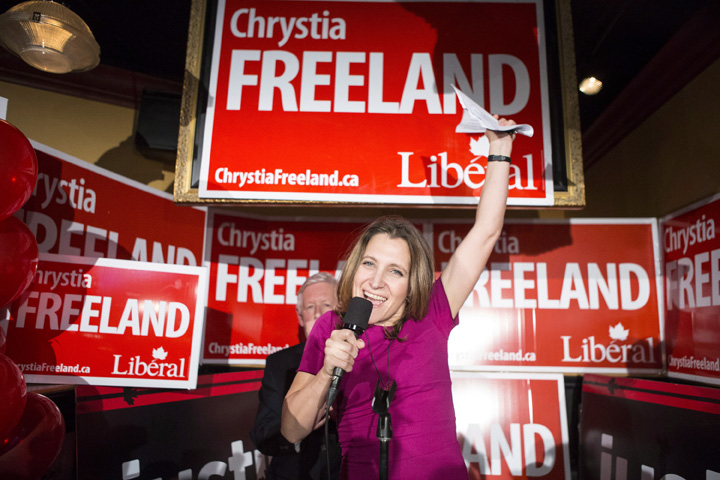Chrystia Freeland’s victory for the Liberals in Toronto Centre wasn’t thanks to a drop in NDP support – but, in large part, a cratering in Tory turnout.

Before the polls closed, the byelection was seen as a dress rehearsal of sorts for the 2015 general election. Was the NDP’s strong showing in 2011 a one-off, connected to Jack Layton’s popularity? Or was it a sign of a more long-term realignment, in which a collapsing federal Liberal party made new room for both the Conservatives and NDP?
It’s a lot to hang on a byelection, but Toronto Centre was the last Liberal holdout riding in Toronto’d central core, otherwise a sea of orange. An NDP victory, rightly or wrongly, would have been seen as another sign the federal Liberals were a dying force.
On the night itself, Freeland won by a comfortable margin. But the Liberals and NDP both increased their vote share significantly – the Liberals gained 8.1 per cent over their share in the 2011 election; the NDP, 6.1 per cent.
One of the keys to Freeland’s solid victory was the catastrophic collapse in Conservative turnout in the riding. At 8.7 per cent, the Conservatives had the lowest share of votes since the riding was created in 2004: In the 2011 federal election, more than 22 per cent of Toronto Centre’s votes went to the Conservatives, largely in the high-income polls north of Bloor Street. Put another way, 9,580 voters in Toronto Centre who voted Conservative in 2011 either stayed home on Monday or voted for another party. (The Liberals and NDP were down 5,700 votes and 4,100 votes, respectively.)
So what does this tell us about 2015? If one theme is a loss of enthusiasm among the Tory rank and file (also seen, dramatically, in Brandon-Souris), then it doesn’t bode well for Stephen Harper’s eight-seat majority.




Comments